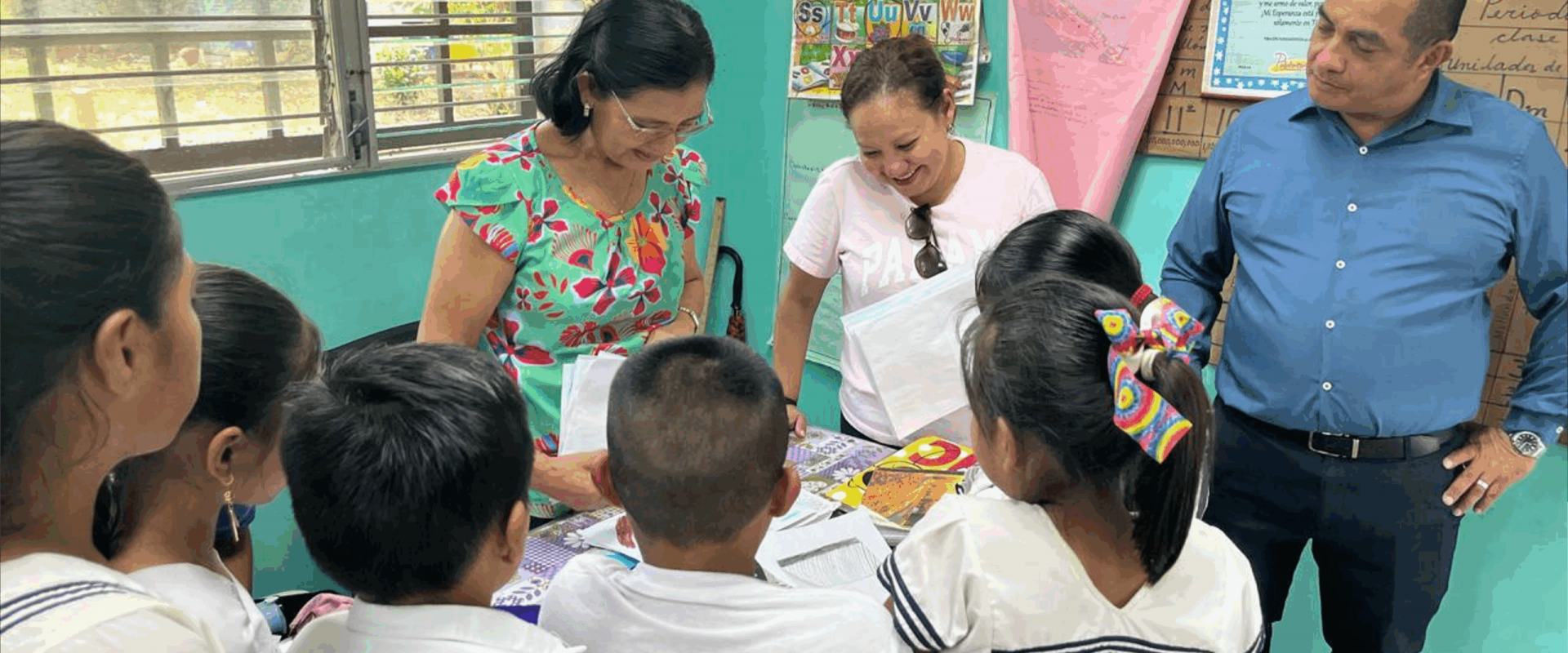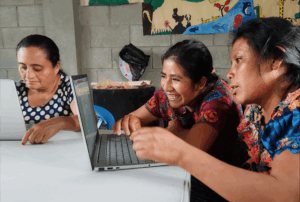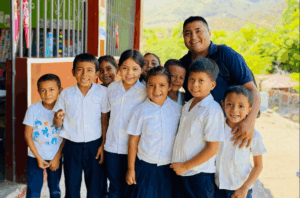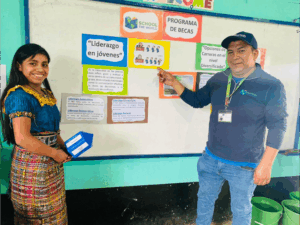
What fuels real, lasting change in education? In Guatemala, Honduras, and Panama, it’s not just schools or books—it’s the people. The local leaders who wake up each day committed to their communities.
We asked our team one simple question: Why does your work matter? Their answers reveal a powerful truth—transformation doesn’t just happen in classrooms. It begins in hearts, homes, and daily acts of belief.
When you work in education, you don’t just teach—you witness transformations. You see people discover what they’re capable of.
Felipa Gómez, an Early Childhood Program facilitator, captures this perfectly: “It fills me with joy to see how mothers become protagonists in their children’s learning from a very early age.” This isn’t just about children in classrooms. It’s about entire families stepping into their own power as educators and supporters.
 The transformation goes deep. These aren’t abstract outcomes. They’re moments when a young person’s life begins to shift. Rosa Pérez, who supports our Middle School Scholarship Program, feels this every time she connects with a student: “It motivates me to know that the scholarship student has clear goals. ‘I want to graduate as a teacher.’” That clarity, that hope, that concrete dream—that’s transformation.
The transformation goes deep. These aren’t abstract outcomes. They’re moments when a young person’s life begins to shift. Rosa Pérez, who supports our Middle School Scholarship Program, feels this every time she connects with a student: “It motivates me to know that the scholarship student has clear goals. ‘I want to graduate as a teacher.’” That clarity, that hope, that concrete dream—that’s transformation.
Even the small moments matter. When Lester Noriega taught mothers how to use a computer as part of our Digital Literacy efforts, one of them said, “Turning this on is easier than gathering fire in the house.” That phrase—spoken by someone stepping into technology for the first time—is transformation too. It’s the moment something that seemed impossible suddenly becomes accessible.
Our staff aren’t just going through the motions. They’re proud of how they’re doing the work, because they’ve chosen a different approach.
Jose Ajeataz who works with our Tutoring Program. “We are changing the lives of children through a different way of teaching,” he says. It’s a fundamental shift in educational philosophy. The program uses Teaching at the Right Level (TaRL), a proven methodology that groups students by actual skill level instead of grade. “Through the Tutoring program, we are teaching in a different way and it generates impact in the lives of children. I am also grateful for the opportunity to direct the program.”
This pride extends to community engagement. Irma Montoya, who works in Parent Engagement, finds deep satisfaction in “being able to share with parents in each meeting and see their faces of joy or reflection in each activity.” Parents are not bystanders in our programs—they’re partners.
Bianca Argueta, our Program Director, shares what it feels like to see theory become reality: “I feel renewed in each field visit.” Watching TaRL and other methodologies take root in real classrooms is what sustains the work.
Bessi Ramírez, one of our educators, says it beautifully: “True learning blooms in connection and shared effort, where each step together brings us
closer to our dreams.” That’s not just a philosophy—it’s what our programs are built on.
And underneath it all is gratitude. Deep, genuine gratitude.
Héctor Cruz, who works with our scholarship and life skills programs, expresses it simply: “Happy and grateful to have a job that allows me to share experiences and learning with young men and women who dream of a better future.”
 Ángel Jóm extends that gratitude beyond the job itself: “I am grateful to School the World for giving me the opportunity to grow and contribute on this path.”
Ángel Jóm extends that gratitude beyond the job itself: “I am grateful to School the World for giving me the opportunity to grow and contribute on this path.”
Ana Joya, one of our longest-serving staff members, has witnessed the evolution of our programs firsthand. From her early days in Guatemala to leading implementation in Panama and now supporting our expansion in the Philippines, Ana has seen the power of education ripple through generations. As she reflects: “It is an honor to work with teachers and children from the most needy communities in the countries where we are working!”
Even in moments of uncertainty, gratitude persists. Everlinda Castro reflects on a Monday morning in the office: “Although the path is not always clear, we continue advancing step by step.” She finds peace in breathing deeply, trusting that “with time everything will become clear.”
These aren’t just nice sentiments from our staff. They’re the actual fuel of our programs. They’re why young people in scholarship programs graduate with clear goals. They’re why mothers feel empowered to engage in their children’s education. They’re why classrooms across three countries are teaching—and learning—differently.
When our staff wake up asking “Why does my work matter?” and can answer with stories of transformation, evidence of better methods, and gratitude for the opportunity to serve, that energy radiates outward. It reaches students. It reaches families. It reaches communities.
These reflections remind us that real change isn’t delivered—it’s co-created. When we invest in local leaders and trust in the power of education, transformation takes root.
Thank you for being part of this story—and for believing that lasting change begins within community.
School the World Service Learning Trips prioritize long-term impact over short-term experiences.
By working directly with student and communities in Guatemala, Honduras, and Panama, participants become part of education partnerships that have been growing for years.
Trips this April and July offer meaningful service experiences that are challenging, grounding, and transformative.